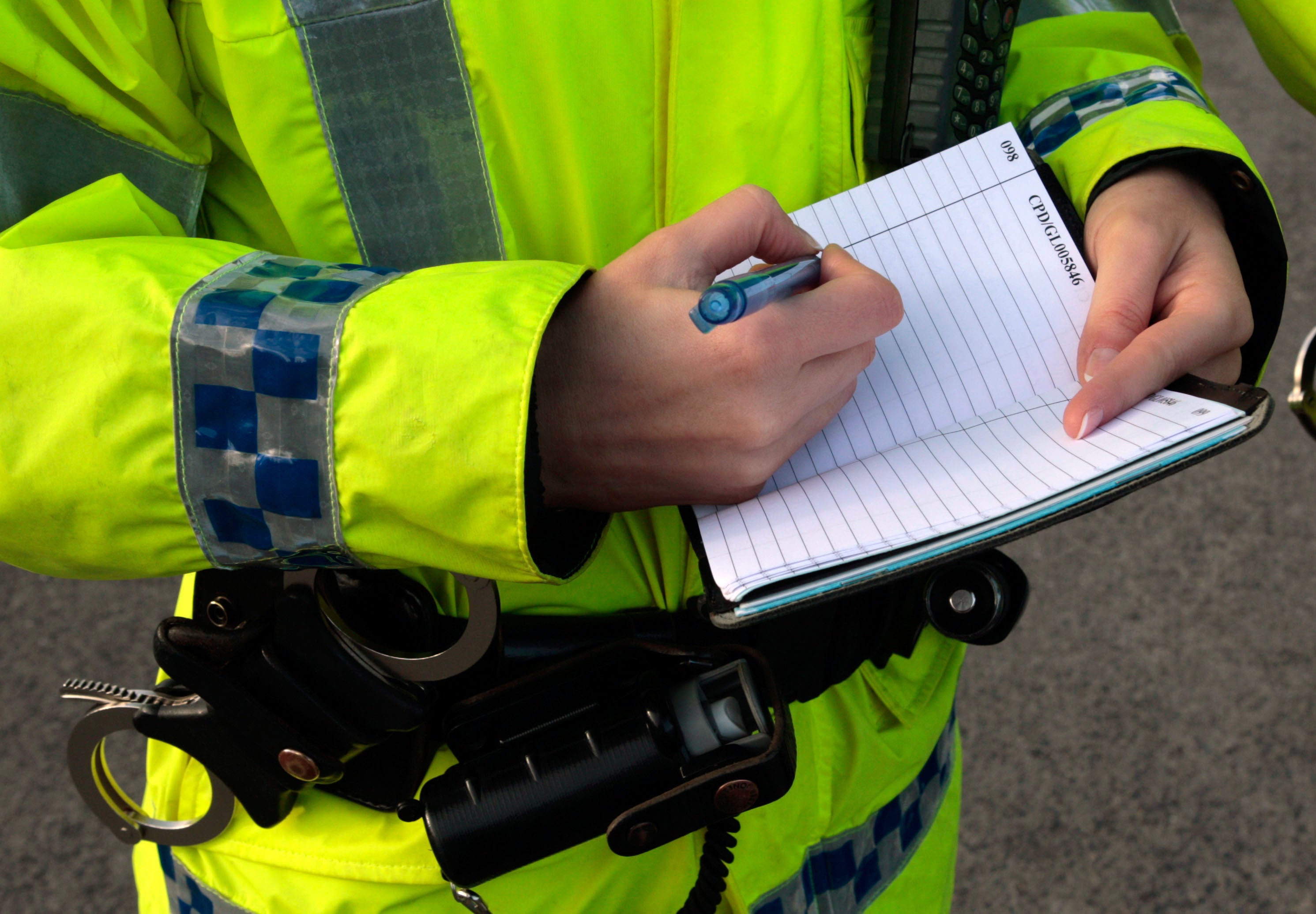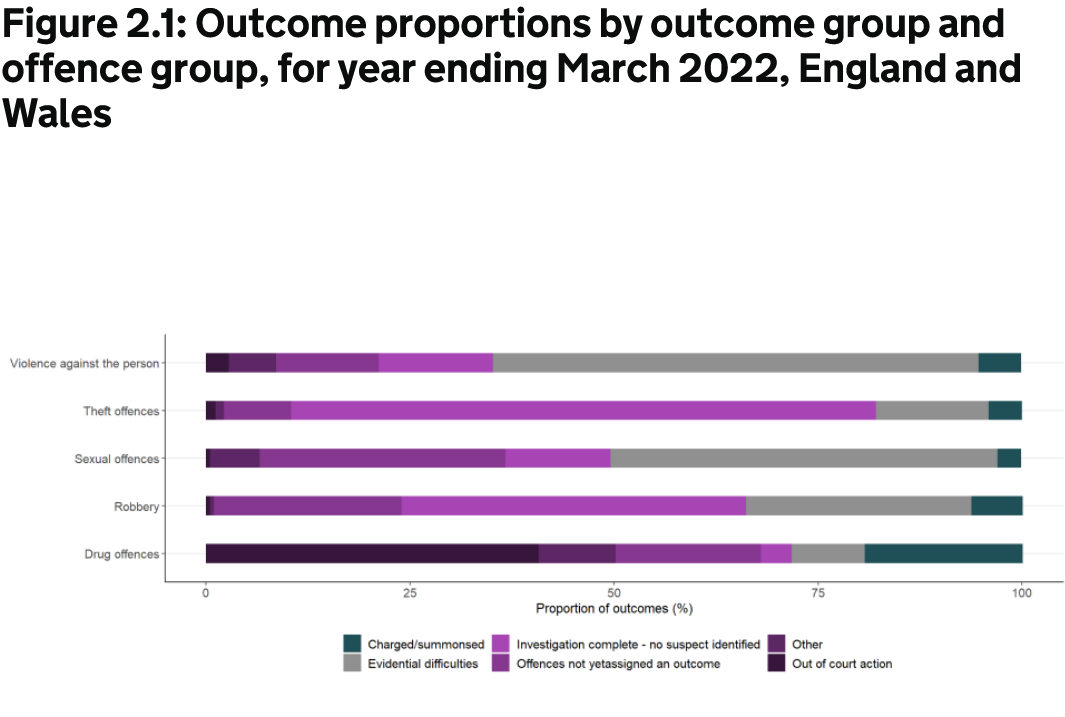Burglary victims being failed amid ‘postcode lottery’ for police investigations, watchdog says
Only 4 per cent of thefts and 6 per cent of robberies prosecuted as police brace for potential rise in cost of living crisis

The police response to burglary, robbery and thefts is a postcode lottery with “unacceptably low” charge rates, the police watchdog has warned.
HM Inspectorate of Constabulary (HMIC) found that victims are being failed because the crimes have been deprioritised by police forces, who are battling other demands and spending almost a third of their time responding to non-crime incidents.
A report published on Thursday found that acquisitive crimes are rarely deemed to fall into the “high harm” category, meaning they are not fully investigated.
Only 4 per cent of theft offences and 6 per cent of robberies result in a prosecution in England and Wales, and the majority of cases are closed with the marker “investigation complete – no suspect identified”.
Andy Cooke, HM chief inspector of constabulary, said: “Those charge rates are far too low for offences that have a significant impact on our communities and they need to improve.”
He told a press conference that some forces were making “basic errors” when responding to burglaries, but that police were also struggling to balance the workload from complex areas of crime and demand from dealing with mental health and medical incidents.
“Around 30 per cent of the time of most frontline officers is spent doing things other than what the public would reasonably expect them to do,” Mr Cooke said.
He previously told The Independent of cases where armed police were being deployed to cardiac arrests because ambulances “can’t cope” with demand, and said that policing was becoming the emergency service of “first, last and only resort”.
Speaking about Thursday’s report, the watchdog said that policing had also been hit by a decade of austerity, adding: “Thankfully we are seeing the uplift programme bringing 20,000 officers coming back in, but it will take some time before those officers are at a level where we can see a real difference.
“We have a national shortage of detectives, so experienced investigators may well have been placed in areas of policing away from this volume of crime.
“That demand, that inexperience, together with the pressures put on policing throughout that period of austerity have undoubtedly impacted on it.”
Mr Cooke warned of a “postcode lottery” that is seeing the response to victims governed by where they live.
The report said that some regional police forces do not have enough crime scene investigators or forensic experts to be deployed to burglaries, and each one has a different model for responding to such crimes.

Nearly a quarter of all thefts and domestic burglaries are concentrated in just 5 per cent of local areas, with London, Greater Manchester and the West Midlands seeing the highest figures.
The report said that some forces focus on preventing offences by looking at the drivers of theft, such as drug addiction and destitution, and police burglary “hotspots” to deter repeat offending.
But others do not, leaving perpetrators to re-offend and victims at risk of being targeted multiple times in an endless cycle of crime.
Mr Cooke called for police to go “back to basics” on investigations to ensure they do not miss opportunities to identify and catch offenders, help victims and stop repeat offending.
“With the resources they have, they are making basic errors and failing to do what would be deemed to be good practice,” he added.
The watchdog stopped short of backing Liz Truss’ call for police officers to be deployed in person to every domestic burglary, but said he did not think it was “too much to ask”.
Yvette Cooper, the shadow home secretary, said: “Burglaries and thefts are deeply distressing for victims, and when the police fail to take action it makes that experience even worse leading to a loss of faith in the system.
“The Conservatives have spent 12 years running down our police leading to overstretched and inexperienced officers, victims let down, and criminals let off.”
The fall in the rate of prosecutions for burglary and theft has mirrored a wider drop in charges over the past six years, which stand at a record low of 5.6 per cent of overall crime.
At the same time, the number of offences recorded by police has reached an all-time high, and there are concerns that thefts, robberies and burglaries might rise further because of mounting desperation linked to the cost of living crisis.
“Chief constables will be aware that there may be an issue where these offences do increase, and if so I have no doubt they are properly planning to address those issues,” Mr Cooke said.
“In order for people to have confidence and trust in policing, they need to see visible action in their community, they need to see police responding to and investigating the offences that matter to them on a daily basis.”
The national police lead for acquisitive crime, Deputy Chief Constable Amanda Blakeman, said chiefs would look at the inspectorate’s findings and help forces improve.
“We absolutely recognise how invasive and traumatic it is to be a victim of these serious offences and police take them seriously, already investing significant resources in preventing and investigating serious acquisitive crime,” she added.
“Policing must continue to work hard to provide the appropriate advice and support to victims, applying best practice so that there is consistency in our overall response, and most importantly bring offenders to justice.”
Ms Blakeman said police would “always prioritise attending home burglaries” for victims who are isolated, vulnerable or elderly, but added: “Chief constables will always have to make difficult operational decisions, including the dispatching of officers, based on an assessment of the level of threat and risk.
“Particularly for these types of offences, police focus on targeting prolific offenders, organised crime networks, and ensuring effective prevention measures are in place.”



